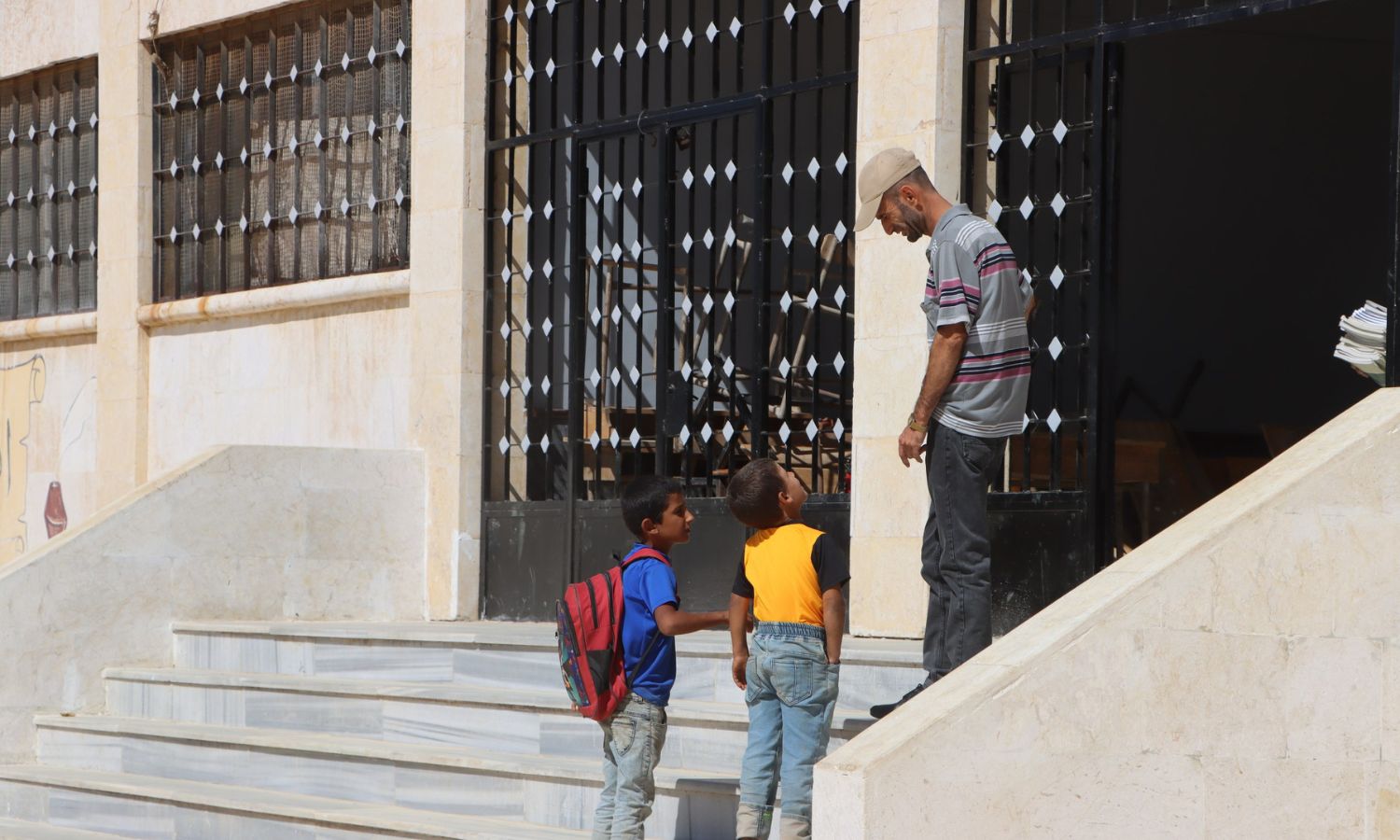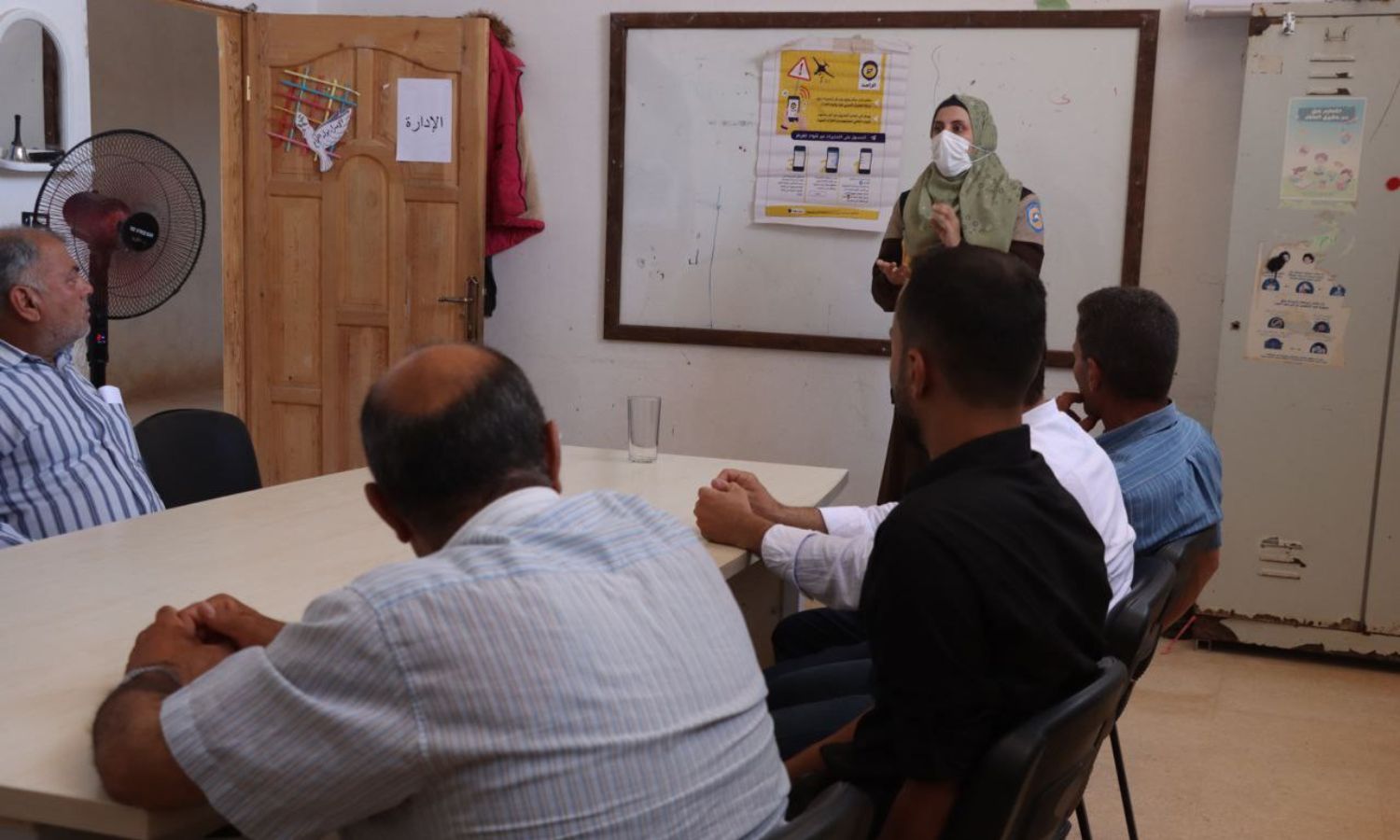



The educational sector in northwest Syria is suffering from issues affecting both staff and infrastructure. Public schools are experiencing persistent crises, a lack of necessary supplies, reduced support, shortages of heating fuel and schoolbooks, and low teacher salaries.
These challenges renew at the beginning of each school year, despite efforts to rejuvenate the educational sector from responsible bodies or civil society organizations. Nevertheless, their efforts remain insufficient given the scale of the needs.
The new academic year 2024-2025 has commenced for school students across various control areas in Syria, while it is set to start in Idlib, controlled by the Syrian Salvation Government (SSG), on September 28.
On the International Day to Protect Education from Attack, on September 9, the Syria Civil Defence reported that 170 schools had been targeted by the regime and Russia over the past five years, noting that schools have been frequent targets.
The reduction in support in northern Syria during 2024 has impacted 700 schools in Idlib lacking essential support, and 100 schools that lost support by last July, affecting 110,000 students and 6,500 teachers, according to the United Nations Office for the Coordination of Humanitarian Affairs (OCHA).
The Syria Response Coordination Group (SRCG) team reported that over 891 schools have gone out of service, including 266 educational facilities in northwest Syria over the past three years due to regime and Russian attacks.
Additionally, more than 77 schools in northwest Syria are being used for non-educational purposes, occupying these schools for tasks not designated to them.
According to an OCHA report in October 2023, the military escalation in northwest Syria has significantly impacted the accessibility of educational services, with 2.2 million school-aged children living in northwest Syria, of whom at least one million are out of school. The situation is particularly dire in displacement camps.

Information sessions for educational staff on the Rased service in schools in northwest Syria – September 2024 (Syria Civil Defence)
On September 9, the Syria Civil Defence announced the provision of light warning devices to 93 schools in Idlib, its countryside, and areas in western Aleppo countryside to warn of potential attacks specifically targeting schools.
These devices operate according to the Rased system launched by the Civil Defense in 2019, which monitors military aircraft movements through civilian observatories that analyze the information to predict the target’s location before strikes and estimate the arrival time.
After detection, the organization sends alerts via social media applications (X and Telegram), sirens with humanitarian teams, or light warning devices present in health facilities, Civil Defence centers, and now in educational institutions.
Among the projects and efforts, Ataa Humanitarian Relief Association launched a student support unit in northern Syria, training 1,053 teachers over 180 days in more than 150 schools distributed in Idlib and Aleppo countryside.
According to the association’s explanation to Enab Baladi, it has opened 21 centers in Idlib and Aleppo countryside, addressing academic and developmental difficulties for 1,757 students as a first phase, with hopes to expand these centers later to target a larger number of students.
The unit head, Ibrahim Naddaf, told Enab Baladi that teachers received training on using learning difficulties treatment guides, enabling them to:
He noted that the central student support unit remains to provide consultation and technical support to any teachers in the north, whether in academic or psychological aspects related to the project.
He added that the treatment centers opened are temporary, aimed at performing a specific function which they have fulfilled. The project’s ultimate goal is to enable teachers to handle students with difficulties within the classroom during regular hours without isolating them in special centers.
Despite efforts to support it, international and local statistics reflect the education sector’s suffering and immense needs, not just due to school bombings and attacks. The February 2023 earthquake has also significantly impacted the educational sector in areas controlled by the Salvation Government in Idlib and western Aleppo.
The earthquake caused 39 fatalities among teachers and administrative staff and 421 among students. The number of damaged school buildings reached 250.
if you think the article contain wrong information or you have additional details Send Correction